
For any contribution, please use the listed address for Western Indiana Community Foundation.
Western Indiana Community Foundation, Inc.
135 S. Stringtown Rd.
P.O. Box 175
Covington, IN. 47932
Federal Tax ID number:
35-1814927
-
Cash
By using charitable tax deductions, the net cost to a donor can frequently be less than the actual amount of the gift. For example, the net cost of a $1,000 cash gift to donors in the marginal 28% tax bracket is just $720 after $280 tax savings.
-
Royalties
If you are the beneficiary of royalty income, income taxes are assessed on the full amount. Giving gifts to charity each year does not reduce these taxes very much. However, you may choose to assign all or a portion of the income to a fund at the Community Foundation. With this strategy, you pay no further tax on this income and may take an income tax deduction for the value of the assignment at the time of the assignment.
-
Securities
Making a gift of appreciated securities will save income tax and eliminate the capital gains tax incurred by selling the securities yourself. For instance, assume you purchased 100 shares of stock for $2,000 several years ago and now the stock is worth $7,000. You can deduct the full $7,000 rather than just your basis in your stock (usually what you originally paid). If you were to sell the stock, you would owe $750 in taxes. However, if you give the stock to a charity, you owe no capital gains taxes! For most donors, the full fair-market value of publicly-traded stocks and bonds may be deducted for income tax purposes up to 30% of adjusted gross income with a five-year carryover. The actual impact of such a gift on your personal taxes should be reviewed with your tax advisor. Note: A donor considering a gift of securities that has declined in value would be better off selling them to realize a deductible loss and then contributing the proceeds to charity.
-
Trust Funds
If you are the beneficiary of a trust, which pays you a regular income, income tax is assessed on the full amount. Giving gifts to charity each year does not reduce the tax very much. However, you may choose to assign all or a portion of the income to a fund at the Community Foundation. In this scenario, you pay no further tax on this income and may take an income tax deduction for the value of the assignment at the time of the assignment.
-
Life Insurance
There are a variety of ways to give with life insurance. An increasingly popular means of charitable giving allows you to make relatively small, yearly, tax-deductible contributions to leverage a substantial fund that will pass to the Foundation on your death. The procedure is simple: you take out an insurance policy on yourself, vesting all ownership rights in the policy in the Foundation and irrevocably naming the Foundation as the beneficiary of the proceeds. Each year, you pay the annual premium, which is fully deductible as a charitable contribution. On your death, the proceeds of the policy pass to the Foundation, free of estate taxes. The donor may also name a charity as a full or part beneficiary on a life insurance policy.
-
Business Interests
Paradoxically, the most important plan made by the owner of a closely held business may be for the disposition of the business interest. The business owner’s interest in a business and his or her personal financial and estate plan are highly interdependent. A valuable business places a considerable estate-tax burden on the business owner’s estate. Without thoughtful planning, retaining the business in the family can be jeopardized. Including charitable giving in the estate planning process may provide many benefits to the business owner(s), the family, and to charity. An entrepreneur who has built up a business to a nice size should seek legal and financial advice to address the tax issues involved in the transfer of the business to heirs. If the business is publicly traded, a block of shares could be transferred to establish an endowment. If the business is not publicly traded, it may still be possible to establish an endowment with the business assets.
-
Retirement Plan Assets
If a retirement account fund (IRA, 401(k), 403(b)) has grown beyond a donor’s needs or there is concern about taxation of heirs, directing all or a portion of these assets into a charitable gift fund can provide the donor with considerable tax savings while benefiting a charitable interest. Careful planning can prevent heirs from being assessed up to 80% of the value of the retirement plan.
-
Non-Profit Endowment Transfer
A governmental entity, non-profit or faith-based organization may wish to transfer endowment monies to the Community Foundation. Such transfers offer superior investment management, administrative savings and most important of all, protection of the assets for the organization.
-
Private Foundation Transfers
A private foundation may transfer all or some assets to the Community Foundation, yet retain the private foundation’s name and purpose. Such transfers offer tax advantages, flexibility, and administrative savings.
-
Real Estate and Tangible Property
Giving appreciated property to charity generates a double tax benefit. In addition to receiving an income tax deduction for the full fair-market of the property, the donor escapes any potential tax on the capital-gain element in the gifted property. Note: A donor considering a gift of property that has declined in value would be better off selling the property to realize a deductible loss and then contributing the proceeds to charity.
-
Corporate Matching Gift Programs
Many employers match the gifts of employees and retired employees. Ask your employer if there is a company matching gift program.
135 S. Stringtown Rd.
P.O. Box 175
Covington, IN. 47932


